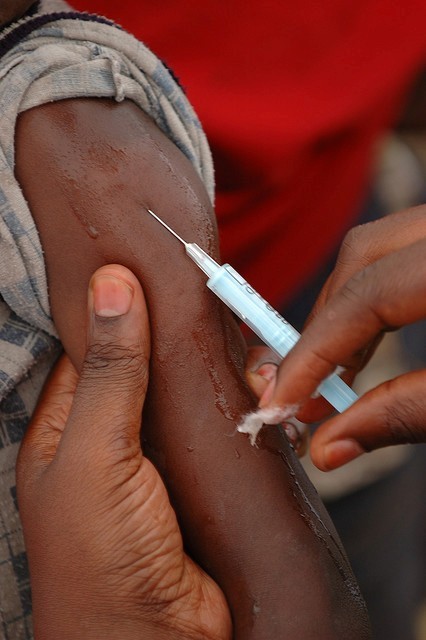Study Confirms Vaccines Rarely Cause Harmful Side-effects

Vaccines for measles, mumps and rubella (MMR) do not cause autism in children, according to a study.
Vaccination for flu and deadly diseases like polio and small pox have protected million of lives by preventing spread of life-threatening diseases and infections. Yet, many parents avoid getting their children vaccinated fearing adverse health reactions. A recent research examined nearly 20,000 records of 67 studies published between 2010 and 2013 to note the association between different types of vaccines and negative health consequences.
The study observed the effects of 11 vaccines including DTaP, hepatitis A, hepatitis B, influenza, meningococcal, MMR, Chickenpox and inactivated polio virus on children aged below six. The analysis revealed immunization does not cause leukemia and food allergies but, the MMR vaccines were rarely linked to high fever and seizures. The 2011 report by the Institute of Medicine found only one in over every 3,000 children who received MMR shots developed fever-triggered seizures, reports the Live Science news.
Flu vaccines also occasionally increased the chances of stomach infections and diarrhea. However, it was found that children who received the MMR shots did not develop autism.
"Fortunately, the adverse events identified by the authors were rare, and in most cases, would be expected to resolve completely after the acute event. This contrasts starkly with the natural infections that vaccines are designed to prevent, which may reduce the quality of life through permanent morbidities, such as blindness, deafness, developmental delay, epilepsy, or paralysis and may also result in death," the study read, reports the Live Science News.
These findings educate parents of the benefits and safety of certain vaccines to ensure their children are immunized against deadly diseases and infections.
"Further investigation is required to increase some trust in the vaccine process and the trust between parents and their health care provider," Courtney Gidengil, study co-author and a pediatrician at Boston Children's Hospital and professor at Harvard Medical School told AFP, reports the Time.
More information is available online in the journal pediatrics.
Jul 01, 2014 07:59 AM EDT




